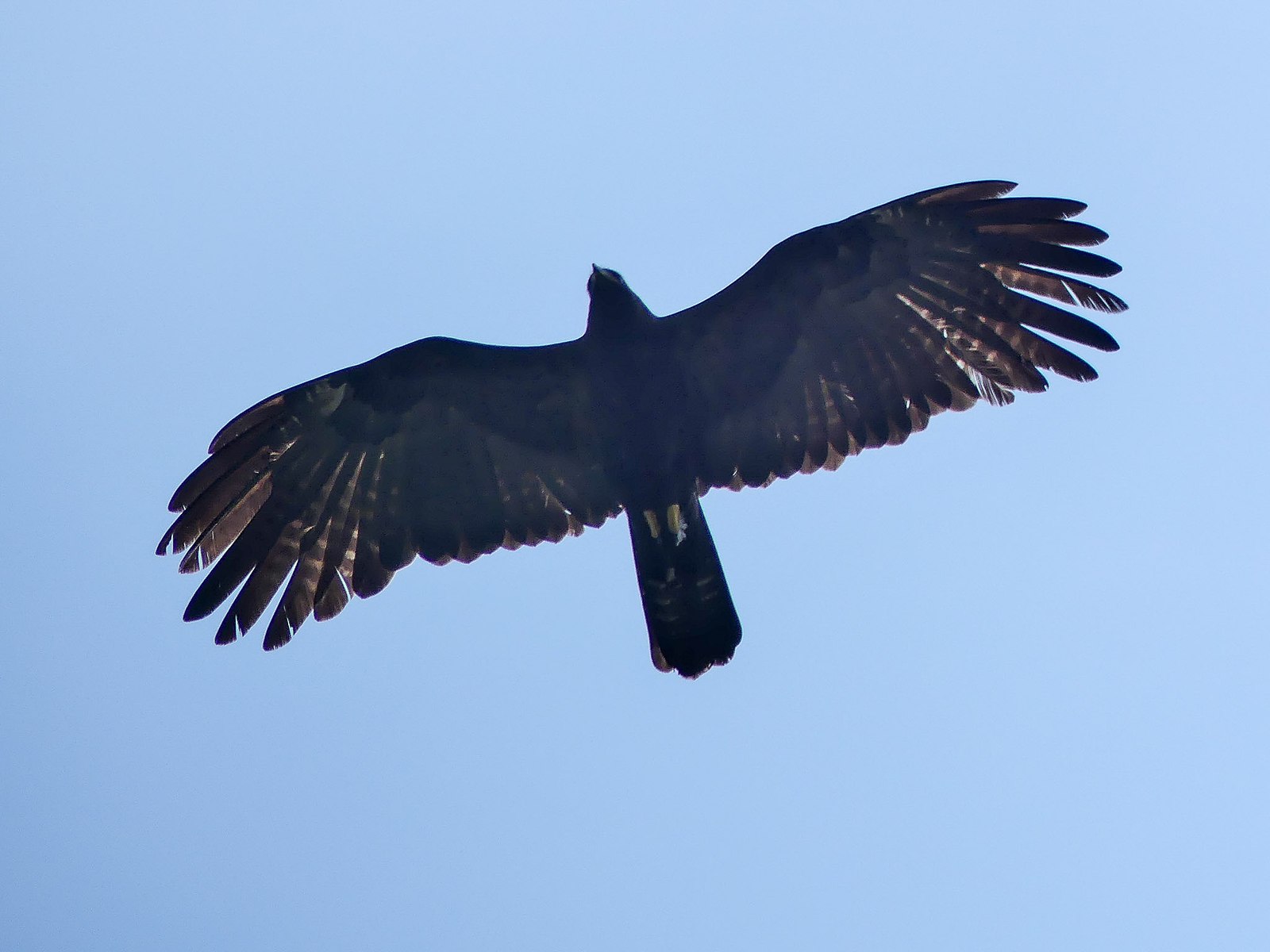Summary
Black eagles are known for their impressive size and hunting abilities, but do they actually prey on domestic cats? The short answer is no – there is no scientific evidence that black eagles regularly hunt and consume cats. While it’s possible for a black eagle to occasionally kill a small mammal like a cat, this is not a common occurrence, and cats are not a significant part of their diet. Instead, black eagles primarily feed on small mammals, reptiles, birds, and fish. This blog post will explore the feeding habits of black eagles and why cats are not a typical prey item for these majestic birds of prey.
What Do Black Eagles Eat?
 Image source: Black Eagle by Mike Prince
Image source: Black Eagle by Mike Prince
Black eagles are classified as carnivorous birds of prey, meaning they hunt and consume other animals for sustenance. Their diet consists primarily of:
- Small mammals: Bats, squirrels, monkeys, and other small rodents
- Reptiles: Snakes, lizards, and small turtles
- Birds: Smaller birds, eggs, and nestlings
- Fish: Black eagles are known to hunt and consume a variety of fish species
While black eagles are capable of taking down larger prey, such as small deer or young antelope, these larger animals are not a common part of their diet. Black eagles prefer to focus on smaller, more readily available prey that they can easily catch and consume.
Do Black Eagles Hunt Cats?
Despite their impressive size and hunting abilities, black eagles do not typically hunt or consume domestic cats. There are a few key reasons why cats are not a common prey item for these birds of prey:
-
Size and Strength Mismatch: Domestic cats, even small breeds, are generally larger and stronger than the typical prey of black eagles. Black eagles are adapted to hunt smaller mammals, birds, and reptiles, and they may be hesitant to engage with a cat, which could potentially defend itself and pose a threat to the eagle.
-
Habitat Differences: Black eagles are primarily found in forested, mountainous regions of Asia, while domestic cats are more commonly found in urban and suburban areas. The lack of overlap in their natural habitats makes it less likely for black eagles to encounter and hunt domestic cats.
-
Prey Preference: Black eagles have evolved to specialize in hunting their preferred prey, such as small mammals, birds, and fish. They have developed specific hunting strategies and adaptations to target these animals, and they may not be as inclined to hunt cats, which are not a typical part of their diet.
While it is theoretically possible for a black eagle to attack and consume a small domestic cat, this is an extremely rare occurrence. There are no documented cases of black eagles regularly hunting or feeding on domestic cats. The more significant threat to small pets like cats comes from other predators, such as coyotes, which are more adapted to urban and suburban environments.
Threats to Domestic Cats
If black eagles are not a significant threat to domestic cats, what are the main dangers that cat owners should be aware of? Some of the primary threats to domestic cats include:
-
Coyotes: Coyotes are opportunistic predators that have adapted to thrive in urban and suburban areas. They are known to hunt and kill domestic cats, both in the daytime and at night.
-
Automobiles: Cats that are allowed to roam outdoors are at risk of being struck by vehicles, which can be a leading cause of injury and death for domestic cats.
-
Diseases and Parasites: Outdoor cats are more susceptible to contracting various diseases and parasites, such as feline leukemia, feline immunodeficiency virus, and parasites like fleas and ticks.
-
Other Predators: While black eagles are not a significant threat, other predators, such as foxes, raccoons, and birds of prey like hawks and owls, may occasionally target domestic cats, especially kittens or smaller breeds.
To keep domestic cats safe, it is recommended that they be kept indoors or in a secure, enclosed outdoor space, such as a catio or a fenced-in yard. This helps to minimize their exposure to the various threats they may face when allowed to roam freely outdoors.
Conclusion
In conclusion, while black eagles are impressive birds of prey, they do not typically hunt or consume domestic cats. Their diet consists primarily of small mammals, reptiles, birds, and fish, and they are not adapted to target larger prey like cats. The more significant threats to domestic cats come from other predators, such as coyotes, as well as environmental factors like automobiles and diseases. By keeping cats indoors or in a secure outdoor space, pet owners can help to ensure their feline companions’ safety and well-being.

